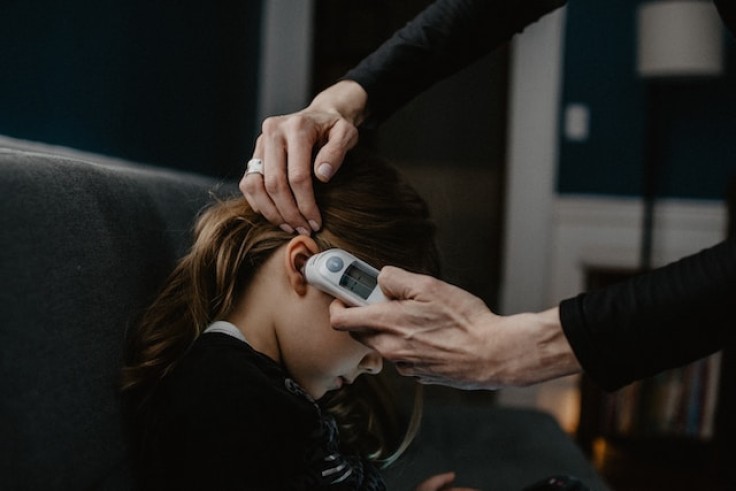
Dealing with a fever in a young child can be a stressful experience for any parent. When your 3-year-old is ill, it's important to know how to safely and effectively reduce their fever.
Here are five strategies that can help:
- Keep Them Hydrated: One of the simplest yet most effective ways to combat a fever is to ensure your child stays well-hydrated. Dehydration can result from fever, especially if there is sweating, vomiting, or diarrhea. Offer plenty of fluids, such as water, diluted fruit juices, or an oral rehydration solution. If your child is reluctant to drink, try giving small amounts frequently, using a spoon or a syringe if necessary.
- Use fever-reducing medication: Acetaminophen (Tylenol) or ibuprofen (Advil, Motrin) can be effective in reducing fever. However, it's crucial to use the correct dosage based on your child's weight and age. Always follow the guidelines on the medication's label or consult your pediatrician. Remember, ibuprofen is not recommended for children under six months, and aspirin should never be used in children due to the risk of Reye's syndrome.
- Dress Them Comfortably: Overdressing a child with a fever can trap body heat and cause their temperature to rise. Dress your child in lightweight, breathable clothing, and use a light blanket if necessary. This allows their body heat to escape and helps regulate their temperature.
- Offer a Lukewarm Bath: A lukewarm bath can help bring down a fever. However, avoid using cold water, as this can cause shivering, which might raise their body temperature. Gently sponge your child with lukewarm water, paying special attention to the underarms, feet, and hands. If your child starts to shiver, it's time to get them out.
- Create a Comfortable Environment: Keep the room at a comfortable temperature-not too hot or too cold. A fan can help circulate air, but avoid pointing it directly at the child. Dim lights and a quiet environment can also help your child feel more comfortable and encourage them to rest, which is vital for recovery.
Read Also: Is Bathing Advisable When You Have Fever?
When to Seek Medical Attention
While these strategies can be effective, it's important to know when to seek medical attention. Contact your pediatrician if:
- The fever lasts more than 24 hours in a child under 2 years old, or more than 3 days in an older child.
- Your child appears unusually lethargic, irritable, or uncomfortable.
- There are signs of dehydration, like dry lips, less frequent urination, or sunken eyes.
- The child has a rash, difficulty breathing, a severe headache, a stiff neck, or refuses to eat or drink.
- The fever is above 104°F (40°C), or any fever in a child under 3 months old.
Preventing Fevers
Prevention is always better than cure. Keep your child up to date with vaccinations, teach them good handwashing habits, and encourage them to stay away from people who are sick.
A fever in a 3-year-old can often be managed at home with these strategies. However, always trust your instincts as a parent. If you're worried about your child's health, don't hesitate to contact a healthcare professional for advice.
Remember, fever is the body's way of fighting off infection and, in many cases, is a sign that their immune system is working as it should.
Related Article: Parents Concerned with Great Similarity of Scarlet Fever and Meningitis: Know the Difference